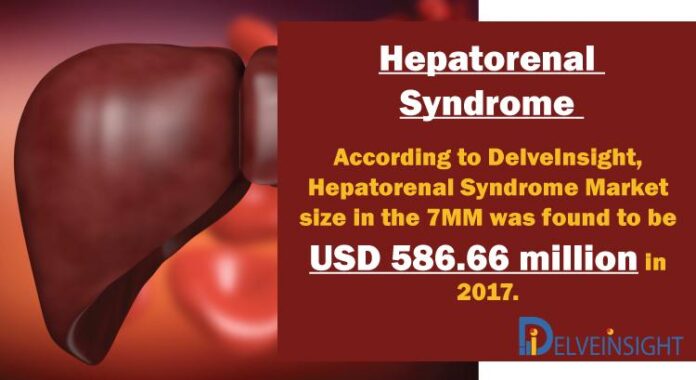
Hepatorenal syndrome is a serious complication of advanced liver disease, in which there is a progressive impairment of kidney function. As the liver becomes unable to function properly, it can lead to disruptions in the body’s fluid and electrolyte balance, ultimately affecting the kidneys. Recognizing the symptoms of hepatorenal syndrome is crucial for early intervention and management of the condition.
In this article, we will discuss the symptoms of hepatorenal syndrome and how they manifest in individuals with advanced liver disease.
1. Fluid Retention
One of the hallmark symptoms of hepatorenal syndrome is fluid retention, also known as edema. This can manifest as swelling in the legs, abdomen, or other parts of the body. The impaired kidney function in hepatorenal syndrome leads to the body’s inability to properly excrete excess fluid, resulting in fluid buildup in the tissues.
Patients with hepatorenal syndrome may notice that their clothes or shoes feel tighter, and their abdomen may become distended. Additionally, they may experience rapid weight gain due to the retention of fluid.
2. Decreased Urine Output
Another common symptom of hepatorenal syndrome is a decrease in urine output, known as oliguria. The kidneys play a crucial role in filtering waste and excess fluid from the body, and when they are affected by hepatorenal syndrome, urine production may decrease significantly.
Patients may notice that they are urinating less frequently, and the urine may appear darker in color. Decreased urine output can contribute to the buildup of toxins and waste in the body, leading to further complications.
3. Jaundice
Hepatorenal syndrome often occurs in the setting of advanced liver disease, which can manifest as jaundice. Jaundice is characterized by the yellowing of the skin and eyes, and it occurs as a result of the liver’s inability to properly process bilirubin, a pigment produced during the breakdown of red blood cells.
Jaundice in the context of hepatorenal syndrome can indicate underlying liver dysfunction, which may contribute to the development of kidney impairment. Patients with hepatorenal syndrome may experience worsening jaundice as the condition progresses.
4. Confusion and Altered Mental Status
As hepatorenal syndrome progresses, it can lead to the accumulation of toxins in the bloodstream, a condition known as hepatic encephalopathy. This can result in confusion, disorientation, and altered mental status in affected individuals.
Patients may exhibit cognitive changes, such as difficulty concentrating, memory loss, and personality changes. These symptoms can significantly impact daily functioning and quality of life for individuals with hepatorenal syndrome.
5. Fatigue and Weakness
The combination of advanced liver disease and hepatorenal syndrome can lead to profound fatigue and weakness in affected individuals. The impaired kidney function and fluid retention can contribute to feelings of lethargy and exhaustion.
Patients with hepatorenal syndrome may find it difficult to perform routine activities and may experience a decline in overall energy levels. Fatigue and weakness can be debilitating symptoms that require careful management and intervention.
6. Gastrointestinal Bleeding
Advanced liver disease, which often precedes the development of hepatorenal syndrome, can lead to an increased risk of gastrointestinal bleeding. This can manifest as the presence of blood in vomit or stool, or as black, tarry stools.
Gastrointestinal bleeding can signify severe liver dysfunction and may further exacerbate kidney impairment in individuals with hepatorenal syndrome. Prompt medical attention is crucial in the event of gastrointestinal bleeding.
7. Ascites
Ascites is a complication of liver disease characterized by the accumulation of fluid in the abdomen. Patients with hepatorenal syndrome may develop ascites as a result of the impaired fluid balance in the body.
Ascites can lead to abdominal distension, discomfort, and difficulty breathing. Additionally, it can contribute to further kidney dysfunction in individuals with hepatorenal syndrome.
8. Hypotension
Hypotension, or low blood pressure, is a common symptom of hepatorenal syndrome. The impaired kidney function can lead to disruptions in the body’s fluid and electrolyte balance, resulting in low blood pressure.
Patients may experience dizziness, lightheadedness, and fainting spells as a result of hypotension. Monitoring and managing blood pressure is crucial in the management of hepatorenal syndrome.
9. Nausea and Vomiting
Patients with hepatorenal syndrome may experience persistent nausea and vomiting, which can significantly impact their quality of life. These symptoms may be related to the underlying liver dysfunction and impaired kidney function in hepatorenal syndrome.
Nausea and vomiting can contribute to dehydration and electrolyte imbalances, further complicating the management of hepatorenal syndrome.
10. Anorexia
Loss of appetite, or anorexia, is a common symptom in individuals with hepatorenal syndrome. The combination of advanced liver disease and kidney impairment can lead to a decreased desire to eat and a lack of interest in food.
Anorexia can result in malnutrition and poor overall health in individuals with hepatorenal syndrome. Nutritional support and monitoring are important aspects of the management of this condition.












